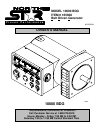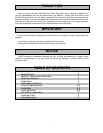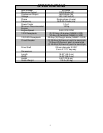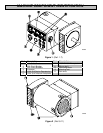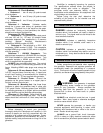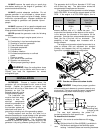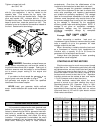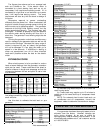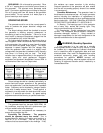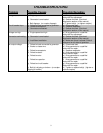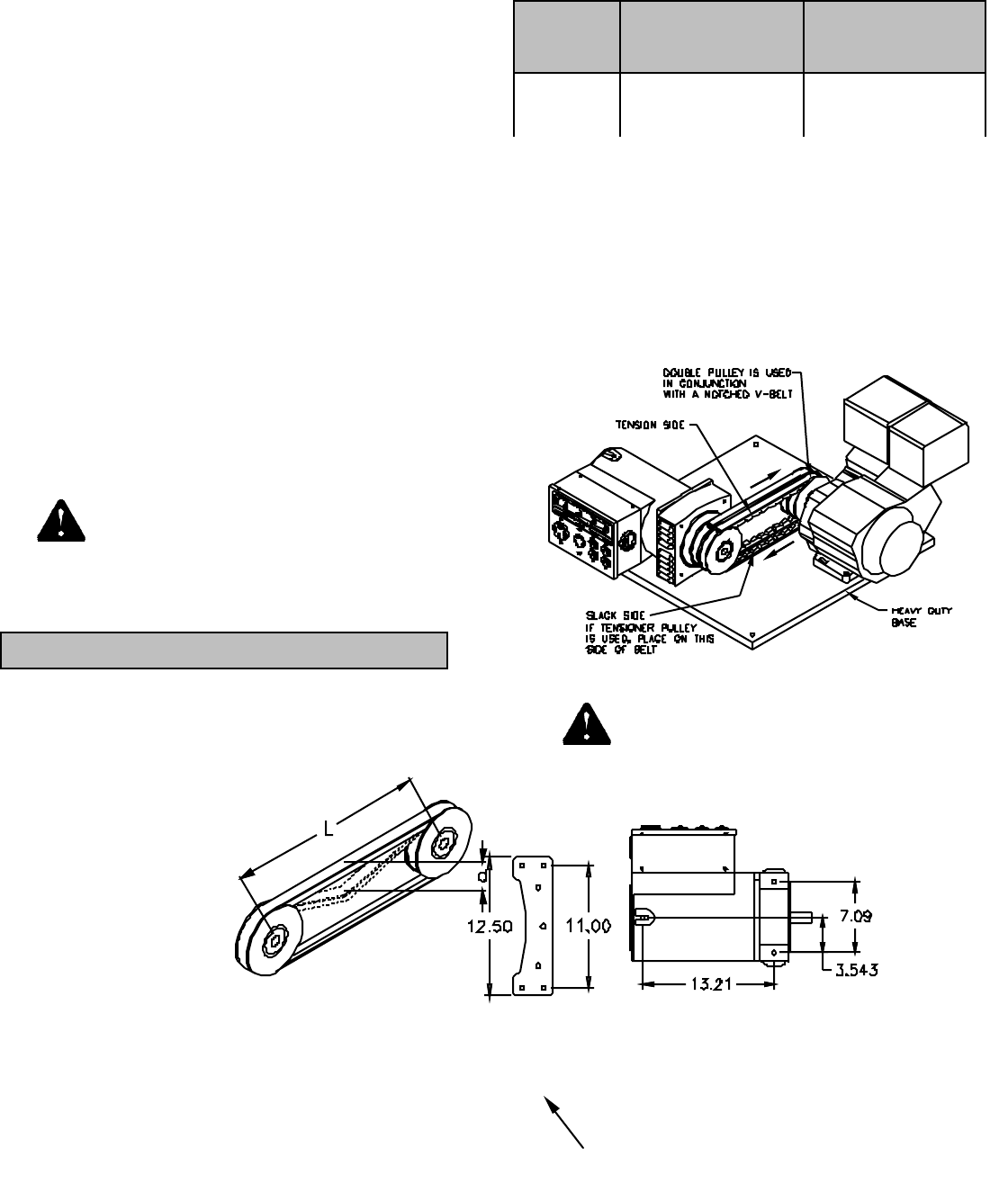
5
ALWAYS remove the spark plug or spark plug
wire before working on the engine or generator, this
prevents accidental starting.
ALWAYS provide adequate ventilation. Do not
operate generator in any enclosed or narrow space.
Engines consume oxygen and give off deadly carbon
monoxide, a poisonous gas. Improper ventilation will
cause damage to generator and possible injury to
people.
ALWAYS remove all oi l or gasoline deposits and
accumulated dirt from generator and immediate area.
Keep generator head and engine clean.
NEVER operate the generator under the following
conditions:
A. Excessive change in engine speed, slow or
fast.
B. Overheating in load connecting devices.
C. Sparking or arcs from generator.
D. Loss of electrical output.
E. Damaged receptacles.
F. Engine misfire.
G. Excessive vibration.
H. Enclosed compartments, or confined
areas.
I. Flame or smoke.
J. Rain, snow or wet conditions.
K. Operator non-attendance.
L. Without proper guarding in place.
WARNING Keep fire extinguisher close
by your generator and be familiar with how to use it.
Consult your local fire department for correct
extinguisher type.
INSTALLATION
OUTDOORS: Choose a location where the
generator will not be exposed to rain, snow or direct
sunlight. Position the generator on secure, level
ground so it will not tip or slide down a hill. Place the
generator so that the
exhaust fumes will not be
directed towards people.
The installation site
must be free from water,
moisture, or dust. All
electrical components
should be protected from
excessive moisture or
the insulation system will
deteriorate and result in
grounding or shorting out of the generating system.
Foreign matters, such as dust, dirt, sand, lint or
abrasive materials can cause damage to the generator
head and engine if allowed into the cooling system.
POWER TRANSMISSION: The recommended
method to transfer the power from the engine to the
generator is by using sheaves (pulleys) and a V-belt.
The generator shaft is 28 mm diameter X 2.38” long
with a 8mm key way. The table below shows the
recommended horsepower and sheaves .
The shaft speed of the generator must be between
3480-3780 RPM. At no load the correct speed is 3780
RPM. If the engine is a 3750 RPM engine, then a
sheave diameter ratio of 1:1 should be used. This
means that the diameter of the sheave on the engine
is the same as the diameter of the sheave on the
generator. If smaller than recommended sheaves are
used, the life of the belt will be shortened. The
possibility of belt slippage also increases with a
smaller sheave.
The engine and generator should be mounted to a
plate or surface that can withstand the constant
vibration and stresses that will be produced. See
figure 3 for a possible mounting configuration.
Figure 3
NOTE: Guards are removed to show details
DANGER Always have proper guarding
of the V-belt(s) and sheaves to prevent access to any
pinch points. Failure to guard the power transmission
mechanisms may result in serious injury or death.
The user shall determine the proper belt
tensioning method for their specific use.
To determine belt tension:
Measure L - the center to center distance of the two
sheaves.
Measure d - the deflection of the belt.
Engine Hp
Double Sheave Dia.
V-Belt Type
Quantity
Double Sheave Dia.
V-Belt Type
Quantity
18 Hp
6.60”
B Belt
2
6.00”
3VX Belt
2
Foot print o
f
mounting feet
is shown at left.
Use 7/16”
grade 5 bolts.
00292
00307
00039
Optional mount kit (item #165935) is available in
the Northern catalog and the NorthStar parts
catalog. Includes 2 plates and mounting hardware.
00291



